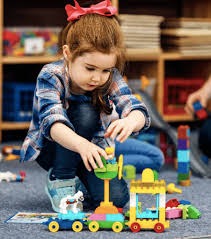In childhood, each moment is a step toward a future filled with potential. Understanding early childhood development can set the stage for lifelong learning and success. This guide will explore how parents can prepare their children for school, from nurturing environments to celebrating developmental milestones.
Providing your child with a strong foundation during the early years pays dividends as they enter school and beyond. It is during this time that young minds are incredibly malleable, absorbing information and forming connections at a remarkable rate. By recognizing the importance of early development, parents can play an integral role in shaping their child’s educational success.
Understanding Your Child’s Developmental Milestones
Every child grows at their own pace, but there are common developmental milestones to look out for. These milestones cover physical, cognitive, and emotional growth, each playing a crucial role in school readiness. Recognizing these stages helps parents provide targeted support to their children.
Physically, preschool-aged children develop crucial motor skills, enabling them to perform tasks like holding a pencil or climbing stairs. Cognitively, children acquire language and problem-solving skills, setting the stage for academic success. Emotionally, they begin understanding their feelings and those of others, which is vital for forming relationships.
Parents can support their child’s development by engaging in activities that foster growth in these areas. Encouraging exploration, reading together, and offering challenges can help children reach their milestones while building confidence and resilience.
Creating a Nurturing Environment at Home
A nurturing home environment is vital for a child’s development. It should be a place where creativity, curiosity, and learning thrive. Parents can create such an environment by providing opportunities for exploration and supporting their child’s interests.
Start by setting up a dedicated space for your child to play, learn, and express themselves. This area can include books, art supplies, and age-appropriate educational toys. Encourage open conversations and ask questions to engage your child’s mind and encourage critical thinking.
In addition, ensure that your home is a safe and loving environment where your child feels valued and understood. Consistent routines, positive reinforcement, and setting appropriate boundaries contribute to a sense of security and stability that fosters growth.
The Role of Play in Early Learning
Play is often regarded as the “work” of childhood. It is a powerful tool for learning that allows children to explore their world, develop new skills, and understand complex concepts. Through play, children experiment, problem-solve, and build social connections—all essential for school readiness.
Encourage different types of play, including imaginative play, physical play, and structured games. Each type offers unique benefits, from enhancing creativity to improving physical coordination and teaching teamwork. By providing a variety of play experiences, parents can support comprehensive development.
Preschool programs, like those in Sandy, often incorporate play-based learning into their curricula, offering structured and unstructured opportunities for children to engage with their peers and explore new ideas. Consider enrolling your child in a program that emphasizes play as a critical component of early education.
Building Healthy Habits for School Readiness
Establishing healthy habits early in life is essential for school readiness. These habits encompass nutrition, sleep, and daily routines that support physical and mental well-being. A well-nourished child who gets adequate sleep is more likely to succeed academically and socially.
Parents can start by providing balanced meals rich in nutrients that fuel a child’s growth and cognitive development. Involve your child in meal preparation to teach healthy eating habits and encourage a positive relationship with food.
Consistent sleep schedules are also crucial for developing young minds. Ensure your child gets enough rest each night and establish a calming bedtime routine to help them wind down. Predictable daily routines, including playtime, learning activities, and chores, help children understand expectations and develop time management skills.
The Importance of Socialization and Emotional Intelligence
Socialization and emotional intelligence are key components of school readiness. Children need opportunities to interact with peers and develop skills like empathy, cooperation, and communication. These skills help children form friendships and adapt to new environments.
Encourage your child to express their emotions and teach them to recognize and manage their feelings. By modeling empathy and active listening, parents can help their children develop emotional intelligence, a skill that will benefit them throughout their lives.
Preparing for the First Day of School
The first day of school is a significant milestone for both children and parents. Preparation can ease anxieties and set the stage for a positive experience. Start by discussing what to expect and visiting the school together to familiarize your child with the new environment.
Involve your child in choosing school supplies and packing their bag. This involvement gives them a sense of ownership and excitement about starting school. Practice routines like getting dressed and having breakfast at the same time each day to establish a sense of normalcy.
For parents, it’s essential to communicate with teachers and school staff about any concerns or special needs your child may have. Building a relationship with the school community can provide valuable support and resources as your child transitions to this new chapter.
Conclusion
With a solid understanding of school readiness and ways to support your child’s development, you can confidently prepare them for their first day of school. Remember, every child grows at their own pace, so be patient and encouraging throughout this journey. By providing love, nurturing, and ample opportunities for play and learning, your child will be well-equipped for success in school and beyond.
Encourage curiosity, creativity, and empathy in your child, and they will thrive academically, socially, and emotionally. Continue to foster a nurturing home environment by offering opportunities for exploration and play-based learning while also promoting healthy habits and emotional intelligence.




